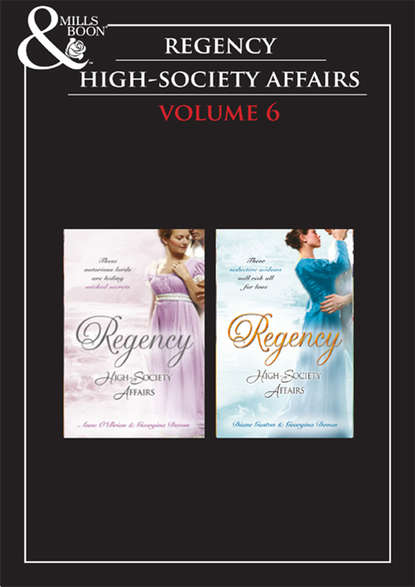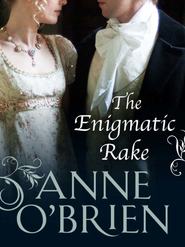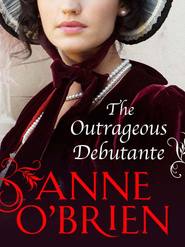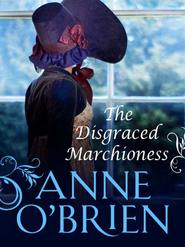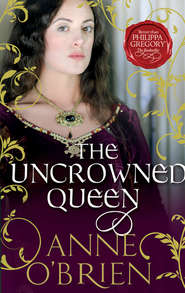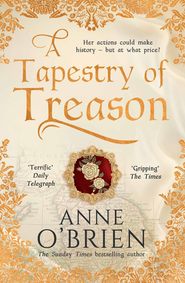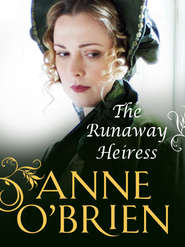По всем вопросам обращайтесь на: info@litportal.ru
(©) 2003-2025.
✖
Regency High Society Vol 6: The Enigmatic Rake / The Lord And The Mystery Lady / The Wagering Widow / An Unconventional Widow
Настройки чтения
Размер шрифта
Высота строк
Поля
Sarah simply shook her head and blushed. But glanced at herself in the mirror with something like shock.
‘The neckline of the dress sits well on you,’ Thea observed as they prepared to depart. ‘I think I will give you a string of pearls to wear with it.’
‘I had some,’ Sarah admitted, a trifle wistfully. ‘From our mother—the only jewellery she had left for me to inherit. But I had to sell them. I needed the money, you see, when John, my husband, died…’ She turned her face away to hide the flush of embarrassment. ‘I did not mean to tell you that.’
‘Oh, Sarah. I don’t think I ever realised how difficult things must have been for you. I am so sorry.’
‘On occasion they were.’ Sarah turned back with the sweetest of smiles. ‘But not today. Today I have forgotten the dark times.’ Her quick smile illuminated her whole face as she squeezed Thea’s hand, and Thea prayed silently that the tranquillity and happiness, so absent from Sarah’s life, would now enfold her for eternity.
Although Sarah might have been entirely caught up in preparations for her marriage, she was determined not to neglect her responsibilities as housekeeper and governess since she had not as yet been replaced in either role. It was not in her nature to do so—nor to sit at ease; since Joshua was still absent in Richmond, it gave her thoughts something to occupy them. But not enough. At any time during the day—or night—she found herself thinking of what he might be doing and when he might return. Was he missing her, even a little, or did he never give her a passing thought beyond that of an obligation to which he was now tied through some quixotic impulse and which he was coming to regret? She hissed her frustrations and looked round for something else to do. So, the next day, after a particularly tedious lesson—even to her mind—in the use of globes with John and Beth, she decide to investigate the attics. The top floor of the house in Hanover Square was a place, like all attics as far as Sarah was concerned, of dust and cobwebs and stored treasures that had long outlived their usefulness.
‘Just look at all this!’ She stood with her hands on her hips, daunted by the extent of abandoned relics of a past life in the house.
‘It’s exciting.’ Eyes round, John could hardly restrain his joy. ‘Like Aladdin’s cave in the stories. Or buried treasure.’
Beth twitched her skirts from the dust with superior distaste, but was secretly enthralled. ‘Can we look in the boxes?’
John was already opening and closing them, declaring it better than lessons. ‘It’s just like exploring an unknown country, as Captain Cook did. As I will do when I am old enough to have my own ship. I shall discover a new country. Perhaps more than one.’ He pulled out an elderly stuffed bird, probably an owl, its feathers moulting on the floor. ‘Which country did this come from?’
‘England, I think. Nothing too exciting.’ His mama smiled. Today it was ships and exploration rather than horses.
She regarded the jumbled piles of unwanted items with a sudden decision not to embark on such a project until she really had nothing better to do. Pieces of furniture, some heavy and carved, some spindly and gilded, but all long out of fashion. A box of unframed water colours of pastoral scenes by some eighteenth-century Faringdon lady—no talent here, Sarah judged, so no wonder they had been allowed to moulder in the attic. There were boxes of clothes, dry and dusty and lavender scented, with a hint of moth, which allowed Beth, to her delight, to dress up and parade in some outmoded creation in heavy damask with whalebone stays and a heavy train.
‘Look at me!’ Beth swept the floor, sending up clouds of dust. ‘Am I not a lady?’
Sarah chuckled. ‘You are indeed a fine lady.’
Beth fastened a spray of egret feathers in her hair, albeit lopsided. ‘I think I am like Grandmama Beatrice. She often wears feathers and is very grand.’
‘So she does. Take care with those backless slippers.’
‘I can walk perfectly well in them.’ Laughing, she swept an ungainly curtsy.
John entertained himself with cries of glee in a chest of discarded toys, lining up a row of broken long-faded lead soldiers. ‘Perhaps I will be a soldier instead. Or a pirate. Can I be a pirate, Mama?’
‘We’ll see.’ Now was not the moment to discuss so lawless an occupation. Meanwhile, Sarah inspected the rest. A firescreen, a birdcage with a broken door, frayed and worn bed-hangings, packets of letters and old documents—all the detritus of life over the years—no, she certainly did not have the energy to clear it all out. Besides, as Lady Faringdon, she would have every excuse not to roll up her sleeves and tackle it herself.
Stacked against the far wall were paintings, some of them of houses and parkland. One was of the estate in Richmond, from the name inscribed in the frame, one might have been the Faringdon country house at Burford under its discoloured varnish, the rest she did not recognise. And portraits. One of Lady Beatrice, probably in the early days of her marriage, which brought a glint of amusement to Sarah’s eyes. She understood exactly why that lady had banished it to the dust and darkness. The artist had no flair and had captured no flattering features in the sitter. One pair of matching portraits showed Joshua and Judith as children. Very attractive, with Judith looking positively angelic and Joshua vastly superior. The rest, as far as she could tell, were old, of people she did not recognise, with Faringdon colouring and features, but with the stiff formality and dress of the past two centuries.
Finally, a group of smaller portraits came to hand, which she turned over with little interest. Family again. Until coming upon a small portrait, life size, but head and shoulders only, which caught her attention. From the neckline of the gown, low across the generous bosom, and the styling of the hair into high-crowned ringlets, it would seem to be of recent origin. Perhaps even in the last decade. A striking lady, young, but not a girl, and not a Faringdon. A dark brunette with distinctly slanted brows and high cheekbones, not a classic beauty, but arresting. And with a tantalising smile on her full mouth and a flirtatious sparkle in her dark eyes, as if she would beckon and beguile. A charming representation. Sarah gained the impression that the artist had caught the lady’s expression to perfection.
So who was this?
Beth had staggered dangerously to her shoulder in a pair of high-heeled damask slippers, to investigate what she was doing.
‘Do you recognise any of these portraits, Beth?’ Sarah spread them on the floor and against the wall. ‘Or this lady?’ She held up the portrait to the branch of candles that they had brought with them.
‘That is Grandmama.’ Beth pointed at the disapproving image of Lady Beatrice as it leaned against the wall. Then shook her head, showing no interest in the rest, before returning to her less-than-stately pursuits.
Leaving Sarah to collect them together again and re-stack them against the wall. Was this lady perhaps Joshua’s wife, Marianne? Beth’s French mother. Sarah regarded the painted face with narrowed eyes, searching for any similarity. Beth might be too young to remember and recognise her. She would have been barely five years old when the lady died, and if she had rarely seen her… But if so, why would her portrait have been discarded here? Unless Joshua had indeed been heartbroken over her death as Judith had suggested, not able to bear the sight of her beloved features. Understandable, yet Sarah felt a tug of jealously that he should have been able to feel such affection for the enchanting Marianne. Certainly he never spoke of her, which might indicate a blighted passion and a damaged heart, and Sarah knew that she did not have the courage to initiate a conversation on the subject of Marianne Faringdon. She prepared to tuck the portrait away. If only Joshua might one day feel such overwhelming emotion toward her. But Sarah shook her head at her foolishness. How could she ever compare with this attractive lady in her husband’s affections?
Or—another thought suddenly struck, a painful dart to her heart—perhaps it was not Marianne at all, but the portrait of a mistress, discarded here when the affair ended. Again, not a thought she wished to pursue.
Or more likely, Sarah decided with a firm determination to reclaim her common sense, it was a lady with no close connection whatsoever to the family. In which case there was no reason for Sarah to feel such a lowering of her spirits. She sighed, rose from her knees, to brush her cobwebbed hands down her skirts in resignation. Whatever the possibilities, it was not her concern.
She turned the lady’s demanding and flirtatious gaze to the wall, to set about persuading a pair of extremely dusty children to leave so miraculous a source of unexpected delights.
Pictures in attics proved to be only one cause of disquiet for Sarah. And not the most unsettling. During her continuing overseeing of the house, she found herself in the rooms occupied until late by the Countess of Wexford. They had been thoroughly cleaned and set to rights on that lady’s departure. Sarah, critically, looked around. The maids, she was forced to acknowledge, had done an excellent job, probably rejoicing in being able to sweep all remnants of that demanding lady from their existence. But then she saw that there on the bed lay a pair of gloves, in the softest of pale grey kid, undoubtedly of French manufacture. Overlooked and forgotten probably, in a drawer, when Hortense packed her mistress’s belongings so rapidly. Perhaps the maid who had cleaned the rooms had found them and forgotten to bring them downstairs.
Sarah picked them up. Smoothed her fingers over their fine surface, lifted them to take in the scent that clung to them. The perfume immediately assailed her senses, heavy and sultry, highly reminiscent of the Countess’s presence. For Sarah it brought the image of the Countess forcefully into her mind—beautiful, stylish, sophisticated—as if she had just polished a magic lamp and a genie had emerged to stand before her. Sarah frowned.
‘I do not need you to continue to haunt this house! You are not welcome here!’ Then, realising that she was speaking to empty air, she laughed softly. But she replaced the gloves and left them where she had found them. She did not wish to think about the Countess of Wexford, or her previous status in this house with regard to Lord Joshua Faringdon. It left her feeling edgy and not a little unhappy. What on earth was Lord Joshua doing, to offer marriage to Sarah Russell when he could have Olivia Wexford as his mistress?
So that by the time Joshua returned from Richmond, it was to discover that his intended bride was in a difficult and skittish mood. After greeting him formally, as his housekeeper, she made herself scarce below stairs, and then was impossible to pin down. Lord Joshua had no intention of treading on Mrs Beddows’s preserve in the kitchen to find her. What a ridiculous situation this was when he could not separate his wife from the housekeeper, when she had found a bare two minutes to welcome him home as if she were still in his employ and then taken herself off to God knows where! He felt his temper building. He had spent his time at Richmond between the tedium of necessary estate business and contemplating his forthcoming nuptials with some bemusement. He was not sure how he had got himself to this point of asking Sarah Russell to marry him. Surely marriage was not the only way to solve the lady’s problems. But he had, for better or worse. His lordship gritted his teeth. And now he wanted to see her and speak with her again. If he could just find her.
He ran her to ground in the formal dining room overlooking the Square where she was in process of replacing the ornate branched silver candlesticks. They had been newly polished and Sarah was engaged in repositioning them on the dining table and the sideboards. For a moment she was unaware of his standing in the doorway, giving him the opportunity to simply look at her. This woman, still little more than a stranger, to whom he had offered marriage. The first impression to deal him a flat-handed blow was that she looked different. Charmingly different. And being well versed in the niceties of female fashion, Lord Joshua immediately knew why. This was the influence of Judith and Thea, if he were not much mistaken. His lips curved in an indulgent smile. They had obviously taken his bride in hand with splendid results. Nothing outrageous or overstated for her delicate role between housekeeper and Lady Faringdon, but an elegant high-waisted gown in a clear summer blue, which he knew immediately would match and enhance her eyes. The sleeves were long and sleek to draw attention to her slender hands. The hem was ruffled and ribbon-trimmed, deliciously feminine. And her hair. It was caught up in frivolous ringlets that fell to her shoulder in the palest of gleaming gold silk, little curls fanning onto her cheeks. He had never thought of Sarah as being frivolous and found himself outrageously moved by the cool, calm elegance of the lady, the quiet dignity with which she completed so menial a task. With the sun angling through the window to gild her with its warm radiance, she was quite lovely. What had he expected from the lady who would be Lady Joshua Faringdon? Just this, he decided, but it still took him by surprise.
He stepped forward and she looked up, then swiftly back down to her task of placing the candlesticks with a nicety of judgement. What he had seen fleetingly in her eyes worried him. She was not at ease. But then, why did that not surprise him either?
‘Sarah.’ He walked toward her, a little hum of anger in his blood, replacing the sudden pleasure, whether at her or himself he had no very clear idea. But his nearness had the desired effect of forcing her to look up.
‘Yes, my lord.’
‘Joshua.’ They were making no progress here. He stifled a sigh and kept a firm hand on any further sharp comment.
‘Yes. Of course.’ She looked at him, eyes wide, assessing, for some female reason that would doubtless be impossible for a mere male to determine.
‘What is it? What is wrong?’ He felt the frown begin between his brows, but could not prevent it.
Sarah saw it too. ‘Nothing is wrong—exactly.’
‘Then if it is nothing exactly, perhaps you could abandon my silver and give your attention to me for a moment. I think I am more important.’ Nor could he prevent the edge in his voice.
It raised the faintest of smiles from his bride as she recognised the arrogant response, which ruffled him still further. So he leaned forward, took the candlestick from her fingers, placed it on the table with less care than might be expected for the highly polished rosewood surface and kept a grip of her hands when she automatically stepped back.
‘Don’t step away.’
‘I didn’t… I wasn’t…’ She was watching him, he realised, as a mouse would watch the approach of a large and hungry cat, wondering if she was about to become a tasty meal or could make a bolt for safety. The humour of it struck home at last and his face relaxed into a smile. The strange ill temper drained away to leave a sensation of lightness and relief.
‘I have missed you. Sarah.’ He kept his voice steady, willing her to respond.
‘I have been busy.’
‘So I see. You no longer look like the housekeeper I left behind.’
Her face was instantly flushed with deepest rose. ‘I have only—that is, I bought some clothes.’
‘Again, as I see. Definitely not my severe housekeeper!’





